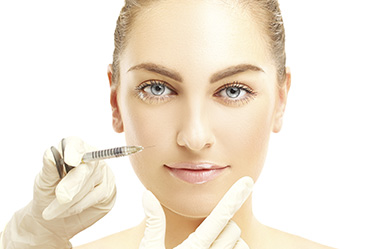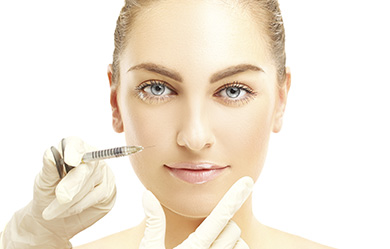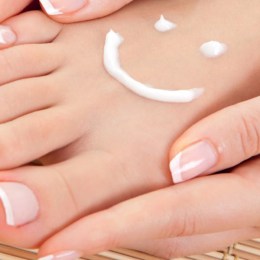Aesthetic medicine makes a difference to people’s lives beyond their appearance, with more and more evidence demonstrating the positive impact a little change to how they look can have on their whole lives, and the lives of those around them.
 How often have we have we heard the professions of aesthetic dermatology, plastic surgery and cosmetic medicine poo-pooed? Or people say that the industry is only skin deep and that what we do isn’t saving lives? How often are people who undertake a procedure looked down upon by their peers, friends and family?
How often have we have we heard the professions of aesthetic dermatology, plastic surgery and cosmetic medicine poo-pooed? Or people say that the industry is only skin deep and that what we do isn’t saving lives? How often are people who undertake a procedure looked down upon by their peers, friends and family?
Every day, in ways that are often not measured, what dermatologists, plastic surgeons, dentists, cosmetic physicians, nurses and other health care professionals specialising in this field do has a positive impact on how people present themselves, feel about themselves and how they interact with the society around them. Little changes as afforded by aesthetic medicine can make a huge difference in all facets of life.
In 2012, a US study showed that while marriage, children and health status were the leading contributors to one’s overall wellbeing, 19 percent of respondents indicated that mental health as an important factor. Appearance was indicated by eight percent of respondents.
Despite this, there is an unnatural sense of guilt and shame associated with appearance, pride and confidence. As soon as someone indicates that they are proud of their appearance, their achievements, or takes pride in the way that they look they are often ridiculed or cut down by their peers.
The Tall Poppy syndrome is not only alive and well, it is exacerbated in the online community with trolling; people harassed for no good reason except the trolls’ own belief that it is a true sport and their actions are ‘not really harmful’ or have an impact on their targets. (It’s interesting that the majority of trolls are women and men aged 40-plus.)
In spite of the trolls, social media is having a powerful impact on the aesthetic medicine industry. Studies show the trend for people to truly take control of their image and the way they are interpreted by others on Facebook, Instagram, Line, WeChat – the list goes on – has led to a 30 percent increase in consultations to address concerns about their appearance. Many of these consultations result in some kind of cosmetic enhancement procedure.
In the medical world, those who specialise in aesthetics are often ridiculed for not practising ‘real’ medicine: ‘You only make people look pretty, you don’t save lives’. However, as industry professionals in this field, we see first hand that mental health and appearance are necessary for holistic wellbeing. What we do in aesthetics matters very much. Take these four published clinical studies:
‘ In 2006, Dr Eric Finzi, medical director and president of two dermatology practices in Maryland, US, and associates showed in 10 patients that using a neuro-modulator [anti-wrinkle injections] helped with the treatment of depression. Nine out of the 10 patients were no longer depressed two months after treatment. The 10th patient had an improvement in mood.
‘ In 2009, St Vincent’s Hospital, Sydney, HIV researchers David Baker and Di Carey showed how the use of a collagen stimulator – by improving dermal thickness and restoring facial volume – helped improve the ‘quality of life’ scores, the mental health outcomes and the social function of people living with HIV facial lipoatrophy (severe fat depletion leading to a dramatically hollowed, gaunt appearance).
‘ In 2013, Brazilian dermatologist Dr Doris Hexel demonstrated in 25 patients that the use of a neuro-modulator in the glabellar complex (the area between the eyebrows where deep groves can form, contributing to an older, sad, even angry-looking appearance) can improve emotional states and significantly improve their self esteem. It was highlighted that self-esteem improvement scores alone cannot explain the improvement in depression symptoms.
‘ In 2014, Dr Michelle Magid, a psychiatrist in Austin, Texas, started the scientific discussion presenting two theories as to why neuro-modulators may help treat depression and mood. The first theory was behavioral-based – if a person looks less sad and anguished, other will engage with them more. When social interaction improves self-esteem and mood will most likely improve. The second was a biological theory: by decreasing the trigeminal nerve signals to the part of the brain that manages the fear response, this can lead to a reduction in the subjects hyperactive fear response, thus reducing anxiety and depression.
Clearly more evidenced-based science needs to be conducted. But now with at least four published clinical papers demonstrating that the use of neuromodulators, dermal fillers and collagen stimulators clearly have an impact upon peoples lives in a positive way underlines what we have all known for some time.
That is, helping people feel better about their appearance, helping people show on the outside how they feel on the inside is important not only for the person undergoing the procedure, but for those who dedicate their lives to this field of medicine. Every day in every way aesthetic medicine makes a real difference. What we do is more than skin deep.
* Australian Scott McLennan is Head of Regional Centre of Excellence, Asia Pacific, at Galderma, distributors worldwide of Restalyne and a portfolio of other dermal fillers. http://scottmclennan.wordpress.com




